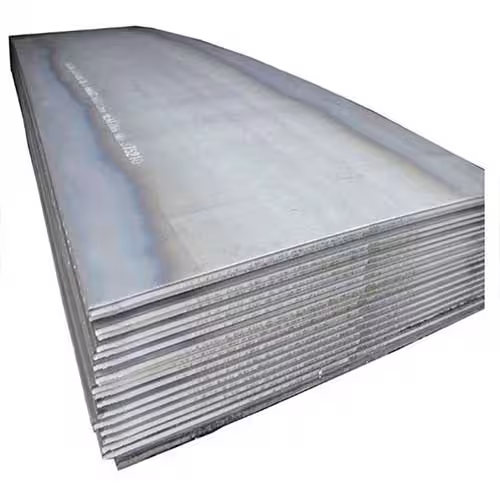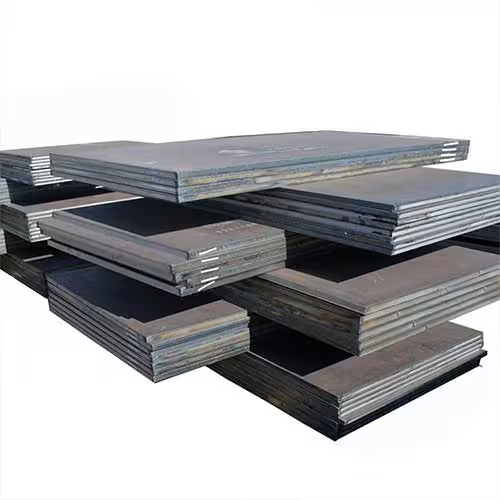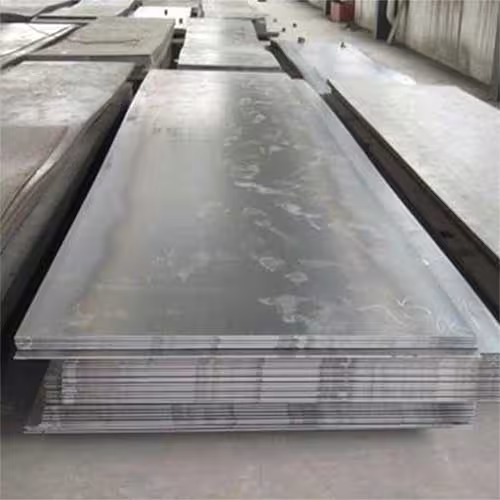Welcome to My Blog!
Before we dive into the content, I’d love for you to join me on my social media platforms where I share more insights, engage with the community, and post updates. Here’s how you can connect with me:
Facebook:https://www.facebook.com/profile.php?id=61565500692293
Now, let’s get started on our journey together. I hope you find the content here insightful, engaging, and valuable.
Table of Contents
Introduction
When it comes to construction, manufacturing, and industrial applications, carbon steel plates are a fundamental material. Known for their strength, durability, and versatility, carbon steel plates are used in a wide range of projects. Whether you are building a structure, fabricating machinery, or creating custom parts, selecting the right carbon steel plates is crucial for ensuring the success and longevity of your project.
This comprehensive guide will walk you through the key factors to consider when choosing carbon steel plates, helping you make an informed decision that meets your specific needs.
Understanding Carbon Steel Plates

Carbon steel plates are a type of steel that contains a specific amount of carbon, typically ranging from 0.05% to 2.1% by weight. This carbon content enhances the strength and hardness of the steel, making it suitable for a variety of applications. Carbon steel plates are available in different grades, thicknesses, and sizes, allowing you to choose the right material for your specific project requirements.
Key Factors to Consider When Choosing Carbon Steel Plates
Selecting the right carbon steel plates involves understanding the specific requirements of your project and choosing a material that meets those needs. Here are some key factors to consider:
Grade of Steel
The grade of carbon steel determines its strength, hardness, and ductility. Common grades include mild steel (low carbon), medium carbon steel, and high carbon steel. Each grade offers different properties, so it’s important to choose the right one for your application.
Thickness
The thickness of the carbon steel plate is crucial for determining its load-bearing capacity and overall strength. Thicker plates are generally stronger and more durable but may be heavier and more difficult to work with.
Size and Dimensions
Carbon steel plates come in various sizes and dimensions. Ensure that the size of the plate you choose fits your project requirements, whether you need large sheets for structural applications or smaller pieces for custom fabrication.
Surface Finish
The surface finish of carbon steel plates can affect their appearance and corrosion resistance. Options include hot-rolled, cold-rolled, and pickled and oiled finishes. Choose a finish that meets your aesthetic and functional needs.
Corrosion Resistance
While carbon steel is not inherently corrosion-resistant, certain finishes and coatings can enhance its durability in harsh environments. Consider galvanizing or painting the plates if corrosion resistance is a concern.
Cost
Carbon steel plates vary in price based on grade, thickness, and size. Determine your budget and look for plates that offer the best value for your money without compromising on quality.
A Comprehensive Table of Carbon Steel Plate Specifications
To provide a clearer understanding of carbon steel plates and their capabilities, the following table summarizes key specifications:
| Feature | Specification |
|---|---|
| Grade | Mild steel (low carbon), medium carbon steel, high carbon steel |
| Thickness | 1 mm – 50 mm |
| Width | 500 mm – 2,000 mm |
| Length | Customizable |
| Surface Finish | Hot-rolled, cold-rolled, pickled and oiled |
| Corrosion Resistance | Enhanced with galvanizing or painting |
| Cost | Varies by grade, thickness, and size |
This table highlights the key characteristics of carbon steel plates, emphasizing their versatility and suitability for a wide range of applications.
Practical Applications of Carbon Steel Plates


Carbon steel plates are used in a variety of applications across different industries. Some of the most common applications include:
Construction
In construction, carbon steel plates are used for structural components such as beams, columns, and reinforcement bars. Their strength and durability make them ideal for supporting large structures.
Manufacturing
For manufacturing, carbon steel plates are used to create machinery, equipment, and tools. Their versatility and ease of fabrication make them suitable for a wide range of industrial applications.
Automotive
The automotive industry relies on carbon steel plates for manufacturing vehicle parts such as chassis components and body panels. The strength and durability of carbon steel ensure that these parts can withstand the rigors of daily use.
Industrial Equipment
Carbon steel plates are also used in the production of industrial equipment such as tanks, vessels, and storage bins. Their durability and resistance to wear make them suitable for harsh environments.
Benefits of Using Carbon Steel Plates
Using carbon steel plates offers several benefits that make them a preferred choice in various applications:
High Strength and Durability
Carbon steel plates are known for their high strength and durability, making them suitable for applications that require robust materials.
Versatility
Carbon steel plates are highly versatile and can be used in a wide range of applications, from construction to manufacturing and automotive.
Cost-Effectiveness
Carbon steel plates are generally more affordable than other materials, making them a cost-effective solution for many projects.
Ease of Fabrication
Carbon steel plates are easy to fabricate, making them suitable for custom projects and complex designs.
Aesthetic Appeal
The surface finish of carbon steel plates can be customized to meet aesthetic requirements, providing a modern and industrial look.
Choosing the Right Carbon Steel Plates for Your Project
Selecting the right carbon steel plates involves understanding your specific project requirements and choosing a material that meets those needs. Consider the following factors when making your decision:
Project Requirements
Determine the specific requirements of your project, including the type of application, load-bearing capacity, and environmental conditions. This information will help you choose the right grade and thickness of carbon steel plates.
Grade of Steel
Choose a grade of carbon steel that meets the strength and durability requirements of your project. Mild steel is suitable for general applications, while high carbon steel is ideal for heavy-duty projects.
Thickness and Size
Select carbon steel plates with the appropriate thickness and size for your project. Thicker plates offer greater strength but may be heavier and more difficult to work with.
Surface Finish
Consider the surface finish of the carbon steel plates, choosing options that meet your aesthetic and functional needs. Hot-rolled plates are suitable for structural applications, while cold-rolled plates offer a smoother finish.
Corrosion Resistance
If your project will be exposed to harsh environments, consider carbon steel plates with enhanced corrosion resistance through galvanizing or painting.
Cost
Evaluate your budget and look for carbon steel plates that offer the best value for your money. Compare prices and specifications to find plates that meet your project requirements without compromising on quality.
Future Trends in Carbon Steel Plate Technology

As technology continues to advance, innovations in steel manufacturing and processing are leading to new materials with optimized properties. Future trends include:
Advanced Manufacturing Techniques
New manufacturing techniques such as laser cutting and precision welding are enhancing the quality and precision of carbon steel plates, making them more suitable for complex applications.
Enhanced Corrosion Resistance
Developments in coatings and finishes are improving the corrosion resistance of carbon steel plates, making them more durable in harsh environments.
Sustainable Manufacturing
The growing focus on sustainability is driving the development of more eco-friendly manufacturing processes for carbon steel plates, reducing their environmental impact.
Conclusion
Choosing the right carbon steel plates for your project involves understanding the key factors, benefits, and considerations associated with this versatile material. Their high strength, durability, and cost-effectiveness make them a preferred choice for a wide range of applications.
If you are looking to invest in high-quality carbon steel plates or need assistance with customization, contact us today. Our team of experts will guide you through the options and help you choose the perfect plates for your specific needs. Enhance your project with our superior carbon steel plate solutions and experience the benefits of this versatile and durable material.
FAQ
What are carbon steel plates used for?
Carbon steel plates are used in a variety of applications, including construction, manufacturing, automotive, and industrial equipment. Their strength and versatility make them suitable for structural components, machinery, and custom fabrication.
Why choose carbon steel plates?
Carbon steel plates offer several benefits, including high strength, durability, versatility, cost-effectiveness, and ease of fabrication. These properties make them a preferred choice for various applications.
What are the key factors to consider when choosing carbon steel plates?
Key factors include the grade of steel, thickness, size and dimensions, surface finish, corrosion resistance, and cost. Understanding these factors will help you select the right carbon steel plates for your specific needs.
What are the benefits of using carbon steel plates?
Using carbon steel plates offers several benefits, including high strength and durability, versatility, cost-effectiveness, ease of fabrication, and aesthetic appeal. These benefits make them a preferred choice for many projects.
What are the future trends in carbon steel plate technology?
Future trends in carbon steel plate technology include advanced manufacturing techniques, enhanced corrosion resistance, and sustainable manufacturing processes. These innovations are making carbon steel plates more efficient and environmentally friendly.

